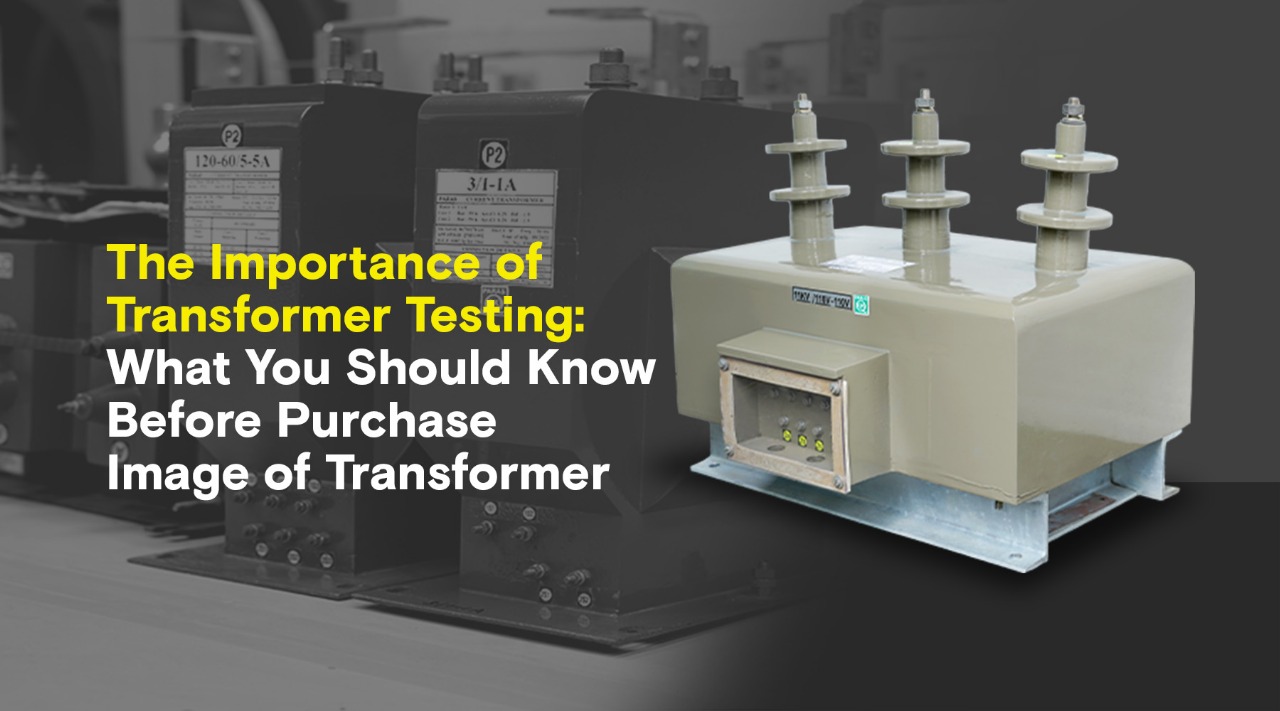If you’ve ever dealt with a transformer failure, you already know—testing isn’t just a checkbox. It’s survival.
Transformers are at the heart of your power system. But here’s the thing: no matter how solid they look on the outside, you won’t know what they’re really made of unless they’ve been tested properly. The right tests tell you whether it’ll hold up when the load spikes, temperatures rise, or conditions turn unpredictable.
And if that testing is skipped, ignored, or done half-heartedly? You’re sitting on a problem waiting to happen.
1.You Can’t See What Testing Can
A transformer can look brand new and still fail in the field.
We’ve seen units that passed visual checks and basic routines—but cracked under real-world stress. Testing is the only way to catch internal faults, winding issues, insulation breakdowns, and design flaws before they cost you.
You wouldn’t install a lift without testing the cables. Why take a chance with your transformer?
2. Failures Are Real—and Expensive
Let’s say your transformer fails. Best case: you get a warning. Worst case: it knocks out a section of your plant.
Downtime, damage to equipment, production delays, and the mess of emergency replacements—all of that could’ve been avoided if the transformer had been properly tested before dispatch.
We’ve seen one failure hold up an entire HT panel installation for 4 days. All because the impulse test was skipped.
3. Not All Tests Are the Same
Here’s what you should be asking for:
- Routine Tests – Basic electrical checks. Mandatory, but not enough on their own.
- Type Tests – These show how the transformer behaves under stress: heat, lightning, short circuits. Crucial for long-term reliability.
- Special Tests – Specific to your use case. Harmonics, temperature rise, noise, whatever matters to your application.
If your transformer supplier can’t clearly explain what tests were done—and why—they’re not doing their job.
4.The Right Testing Saves More Than Just Money
It protects your team. It protects your machinery. It protects your reputation when deadlines are tight and pressure is high.
Transformer testing isn’t a quality add-on. It’s a quality baseline.
5.At Paras Power, Nothing Leaves Untested
Every unit we build goes through the full set of tests—routine, type, and custom—based on where it’s going and what it’ll be powering.
We don’t just test under ideal lab conditions. We simulate what your transformer will face in the field. That’s how we ensure that once it’s installed, you don’t have to look back.
Before You Buy, Ask the Right Questions:
- What tests have been done?
- Can I see the reports?
- Has this been tested for my application?
If the answers are vague or delayed, that’s your signal.
At Paras Power, we believe in building things that work—and keep working.
Because once it’s installed, it’s not our transformer anymore. It’s your responsibility. And we take that seriously.

